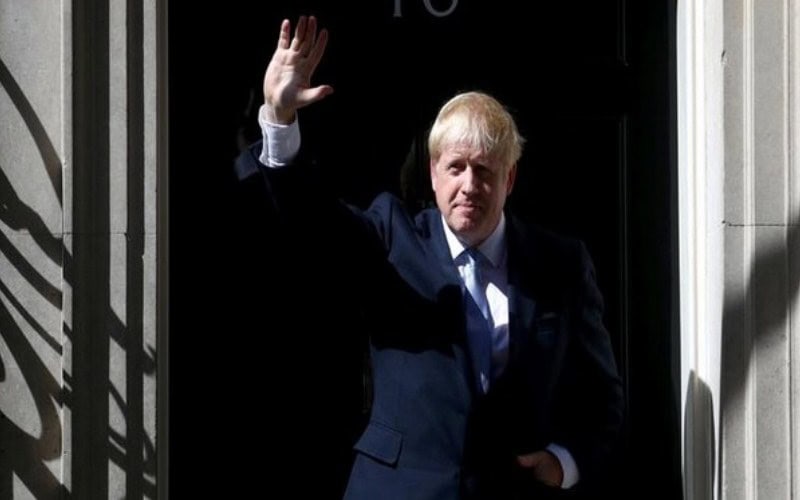London: Iran’s detention of a UK-flagged tanker presents new British Prime Minister Boris Johnson with an early leadership test — does he side with the US “maximum pressure” campaign against the Islamic republic or back EU efforts to salvage its nuclear pact.
Which way Johnson leans could set the tone for a complex agenda that includes withdrawing from the European Union and establishing much closer trade relations with the United States.
Some US commentators even see this is a make-or-break moment that might vindicate President Donald Trump’s decision to abandon the Iran nuclear deal and seek one curbing Tehran’s broader activities in the Middle East as a whole.
“Johnson could simply announce that the UK is joining America’s maximum-pressure campaign and calls for a new (Iran) deal,” the editorial board of The Wall Street Journal wrote.
“The rest of Europe would likely have no choice but to join its Anglophone partners — and finally present a united front.”
– Naval escorts –
Britain responded to the tanker’s seizure last Friday by proposing a European-led naval escort mission for the world’s busiest shipping lane.
Such an operation could expose Britain’s reliance on EU allies at the very same time that Johnson is determined to yank his country out of the bloc on October 31.
Johnson’s other option is to sign Britain up to a US-led alliance outlined by Trump’s administration at NATO last month.
That decision could boost London’s chances of reviving stalled efforts to strike a post-Brexit trade deal with Washington.
The downside risk is that British warships could be caught up in more aggressive US rules of engagement that London currently does not support.
Johnson’s spokesman on Thursday condemned Iran’s seizure of the tanker as an “illegal act” and said the government was focused on securing the release of the Stena Impero and its crew.
“What we’re working on in relation to Iran is de-escalating current tensions,” the spokesman said.
The government also announced a decision for the navy to accompany UK-flagged tankers through the Strait of Hormuz “should sufficient notice be given of their passage”.
– Bridge between EU and US? –
A more long-term response could emerge from a conference the US Central Command (CENTCOM) is hosting this week at which Britain and the interested Europeans will discuss coordination between the two convoy plans.
New US Defense Secretary Mark Esper said he expected them to be “complementary” and coordinated by the Pentagon.
“CENTCOM will be the coordinating authority,” Esper said Wednesday.
British officials have not said whether — or on what terms — they were willing to accept US oversight.
But Iran is already seething at both foreign escort proposals and the friendship that Johnson and Trump played up during the UK leadership race.
Tehran’s ultra-conservative Resaalat newspaper published a cartoon Wednesday of Johnson as a British butler being patted on the head by Trump in the Oval Office.
“British Trump,” the banner of the reformist Sazandegi said.
Centre for European Reform foreign policy director Ian Bond said Trump should theoretically welcome European burden-sharing in the Gulf.
“Based on the fact that Trump is always complaining about how little the Europeans do for their own defence, he ought actually to think that it was a good thing that the Europeans were taking care of this,” Bond told AFP.
Bond said the mooted inclusion of non-EU members such as Norway would also provide “a practical implementation of what (former premier) Theresa May was saying — that we are leaving the EU, we are not leaving Europe”.
But Chatham House’s Middle East researcher Sanam Vakil advised Britain’s new leader to “avoid the temptation to align completely with Washington on Iran”.
“Rather than conflating the ships and the nuclear crisis, a direct UK-Iran bilateral negotiation on the tankers could provide both sides with a face-saving outcome,” Vakil wrote.
“The UK could position itself as a bridge between the EU and US, and in the process boost its post-Brexit relevance,” she said.

